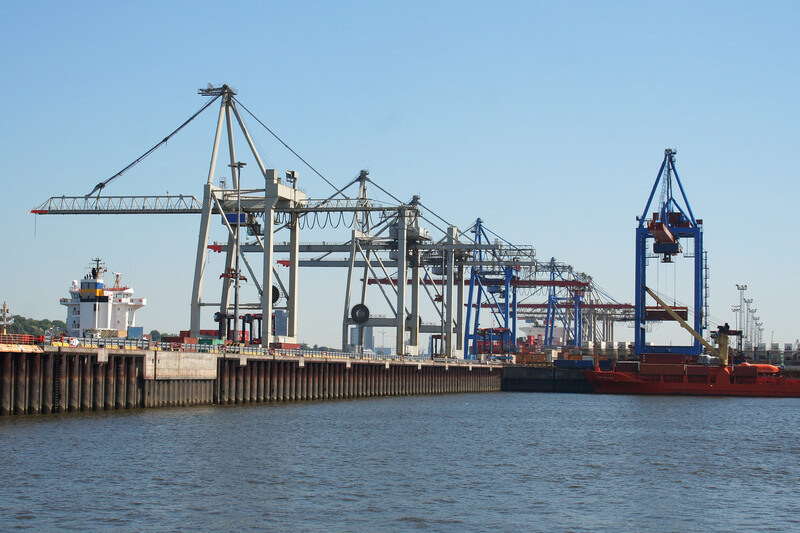E1 visas are authorized for nationals of countries with which the United States has a commercial treaty, who are coming to the U.S. solely to engage in trade of a substantial nature principally between the United States and their country of nationality. The trade involved must be international exchange (successfully negotiated contracts binding on all parties) of items of trade between the US and a treaty country. Title to the trade item must pass from one treaty party to the other.
If you are inside the US, use form I-129 to apply for a change of status, extension of stay, or change of employment. If you wish to speed up the processing of your petition, you may wish to use USCIS’ premium processing procedure.
This classification does not require a petition for employment if the applicant is outside of the US. Those outside of the US, apply for E1 visas at a US consular office abroad.
Client Reviews

Great Work!
“Cheryl is a genius! If not for her I sincerely don't believe I would have a green card right now. I had a challenging case (work visa based) that took years, but with her knowledge of the law and experience she used everything in her power to make it work. In addition to her expert knowledge of the law she is also an absolute pleasure to work with (if you've worked with other attorneys you know that is often not the case).”
- Renee L., Santa Monica, California
Read More Reviews
Zoom Consultations Available!
As of December 23, 2022, Section 101 (a)(15)(E) of the Immigration and Nationality Act (INA) was amended to define the eligibility criteria for E visas.
For all E-1 and E-2 filings received on or after December 23, 2022, USCIS may request additional documentation related to how the applicant obtained treaty country nationality to ensure compliance with the amended language.
In addition, for those individuals who obtained treaty country nationality through a financial investment, USCIS may require additional documentation to show that the applicant has been domiciled in the treaty country indicated in the application for a continuous period of at least 3 years at any point before applying for E-1 or E-2 classification.
The current text of the statute is as follows:
(E) an alien entitled to enter the United States under and in pursuance of the provisions of a treaty of commerce and navigation between the United States and the foreign state of which the alien is a national, or, in the case of an alien who acquired the relevant nationality through a financial investment and who has not previously been granted status under this subparagraph, the foreign state of which the alien is a national and in which the alien has been domiciled for a continuous period of not less than 3 years at any point before applying for a nonimmigrant visa under this subparagraph, and the spouse and children of any such alien if accompanying or following to join such alien;
On November 12, 2021, USCIS issued a policy announcement to clarify that they will consider E and L spouses to be employment authorized based on their valid E or L nonimmigrant status.
E1 VISA – RELATED PAGES:
- E1 Visas – Treaty Traders (USCIS)
- List of Countries with E-1/E-2 Treaties
- Employment Authorization for Certain H-4, E, and L Nonimmigrant Dependent Spouses – USCIS (November 12, 2021)
E1 VISA – APPLICATION DOCUMENT REQUIREMENTS
An application for an E1 visa must be filed with the appropriate fee payment, and evidence that:
- The applicant is a national of a country with whom the US has the requisite treaty or agreement;
- The activity constitutes trade as defined at 214.2(e)(9);
- The trade is of a substantial nature, i.e. an amount of trade sufficient to ensure a continuous flow of trade items between the US and the treaty country;
- The trade conducted by the alien is principally trade between the United States and the treaty country of which the alien is a national. Trade is deemed to be principally between the US and treaty country when over 50% of the volume of international trade conducted by the alien treaty trader is between the US and treaty country of which the alien is a national;
- If the applicant is not the principal trader, that the alien is employed in a supervisory or executive capacity, or possesses special qualifications that make the alien’s services essential to the successful and efficient operation of the enterprise.
- The applicant intends to depart the US upon the expiration of E-1 status. (However, an application for initial admission, change of status, or extension of stay in E classification may not be denied solely on the basis of an approved request for permanent labor certification or a filed or approved immigrant visa preference petition.)
- The employee has the same nationality as the principal alien employer.
- The alien employer is an enterprise or organization at least 50% owned by persons having the nationality of the treaty country.

